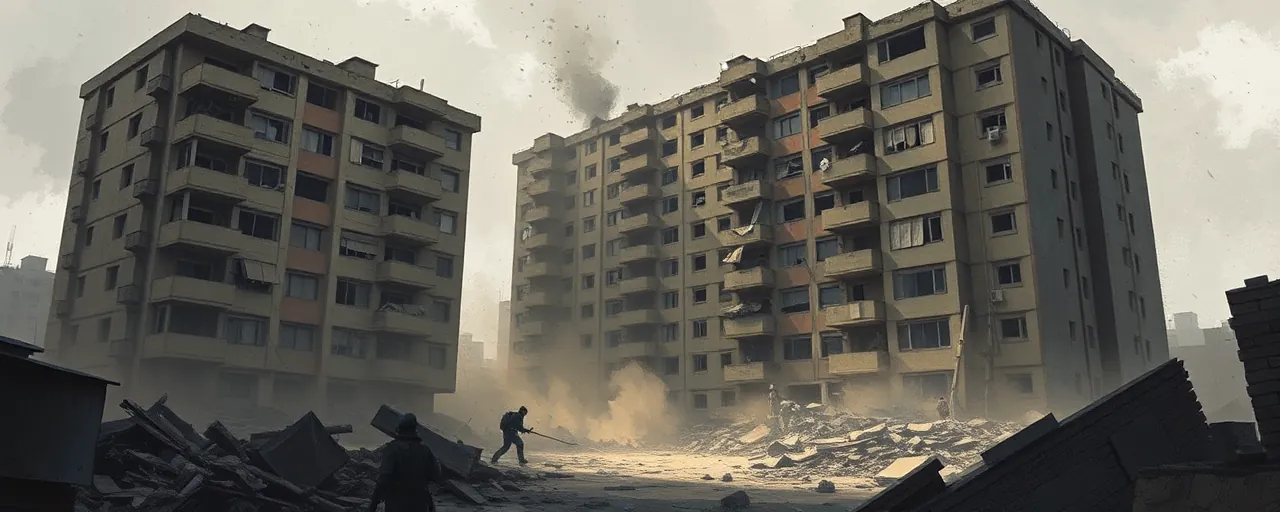A Devastating Blow in Sumy
A Russian missile tore through Sumy, Ukraine, on April 13, 2025, leaving 34 people dead and over 100 injured. The attack leveled homes and shattered lives, a grim echo of the violence that has plagued the region for three years. Families scrambled for safety as emergency workers dug through rubble, racing against time. The strike, one of many targeting civilian areas, sparked fresh outrage and renewed calls for an end to the war.
The U.S. State Department, led by Secretary Marco Rubio, condemned the attack and expressed sympathy for the victims. Rubio tied the tragedy to broader efforts by the Trump administration to broker peace, framing it as a stark reminder of the stakes. Yet, the path to resolution remains tangled, with both sides locked in a conflict that has displaced millions and destabilized global security.
The Human Cost Mounts
The war’s toll on civilians is staggering. Over 10 million Ukrainians have been uprooted, with 3.6 million displaced within the country. Strikes like the one in Sumy have destroyed schools, hospitals, and power grids, leaving millions without basic needs. Winter has worsened conditions, with displaced families facing freezing temperatures and scarce resources. Aid groups, like the International Rescue Committee, struggle to keep up with the scale of suffering.
Beyond the numbers, the war has left deep scars. Frontline communities report widespread trauma, with children bearing an especially heavy burden. An average of two children have been killed or injured daily since the invasion began in 2022. The targeting of civilian infrastructure raises questions about violations of international law, fueling debates over accountability.
Diplomatic Efforts Hit Roadblocks
The U.S. has positioned itself as a key player in seeking a ceasefire, with Rubio coordinating with allies to support Ukraine while exploring talks with Russia. But negotiations have faltered. Russia insists on territorial concessions, a demand Ukraine and its Western backers reject. Some Global South nations, wary of Western influence, question the focus on isolating Moscow, complicating unified action.
Past diplomatic efforts offer little optimism. Early talks collapsed over irreconcilable goals, and recent U.S.-Russia discussions have exposed inconsistent messaging. While some U.S. officials push for compromise, others stress Ukraine’s right to sovereignty. Russia, meanwhile, has used delays to its advantage, maintaining pressure on the battlefield.
Sanctions Bite, But Don’t Break
Economic measures against Russia have hit hard. Sanctions on oil exports and financial systems have slashed energy revenues, which make up nearly a third of Russia’s budget. The ruble’s value has plummeted, and military spending has deepened fiscal deficits. Yet, Russia has found workarounds, boosting trade with China and India to offset losses. The sanctions’ impact, while significant, hasn’t forced a shift in Moscow’s strategy.
A Fragile Path Forward
The Sumy attack underscores the urgency of finding a way out of the conflict. Each strike erodes hope for those caught in the crossfire, while global divisions hinder progress. The U.S. and its allies face the challenge of balancing support for Ukraine with the realities of a protracted war. For now, diplomacy remains a flickering light, dimmed by mistrust and competing agendas.
As the war grinds on, the world watches a nation unraveling under relentless violence. The question lingers: how many more lives will be lost before a lasting peace takes hold? The answer depends on leaders willing to confront hard truths and prioritize humanity over geopolitics.
